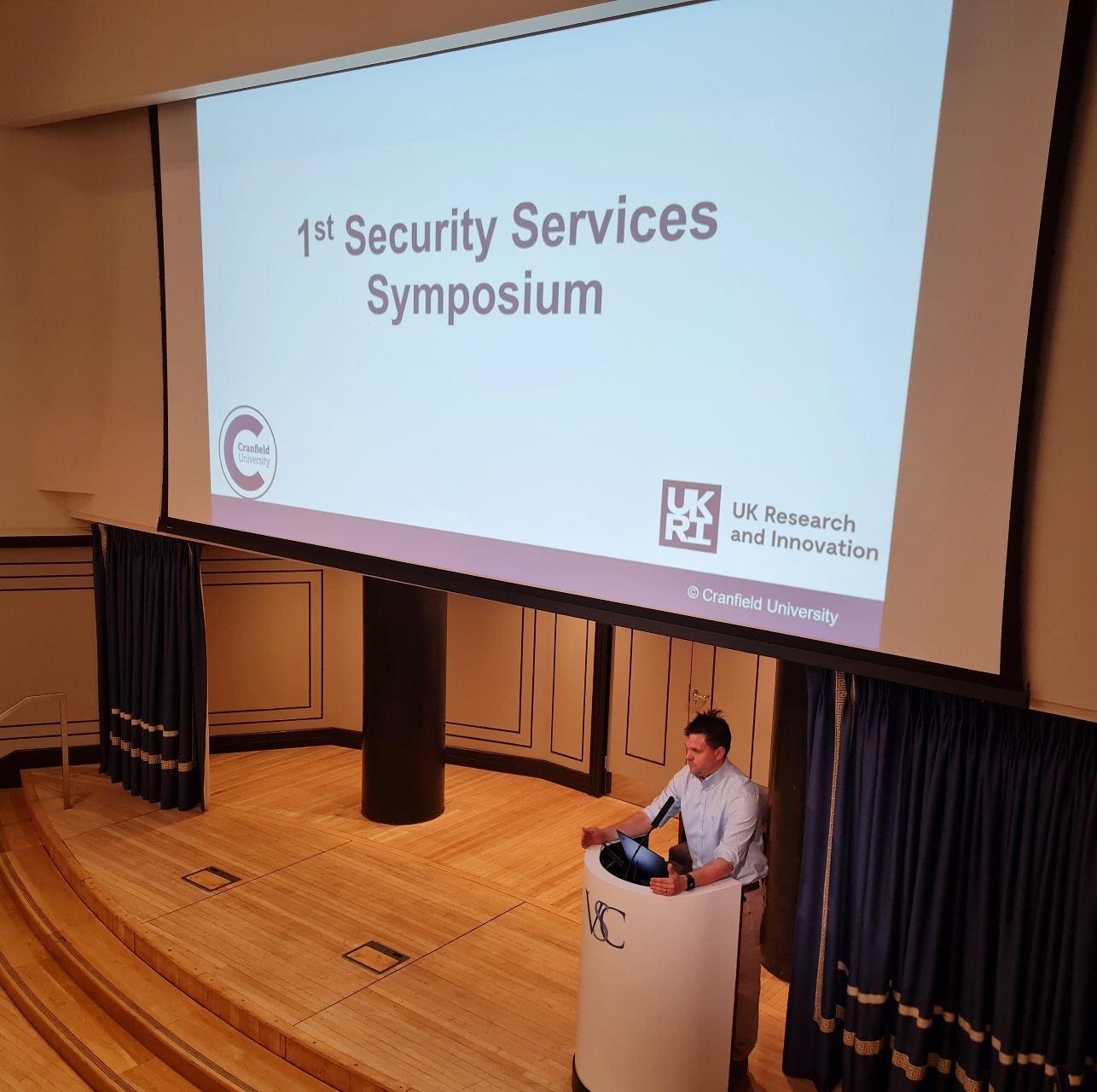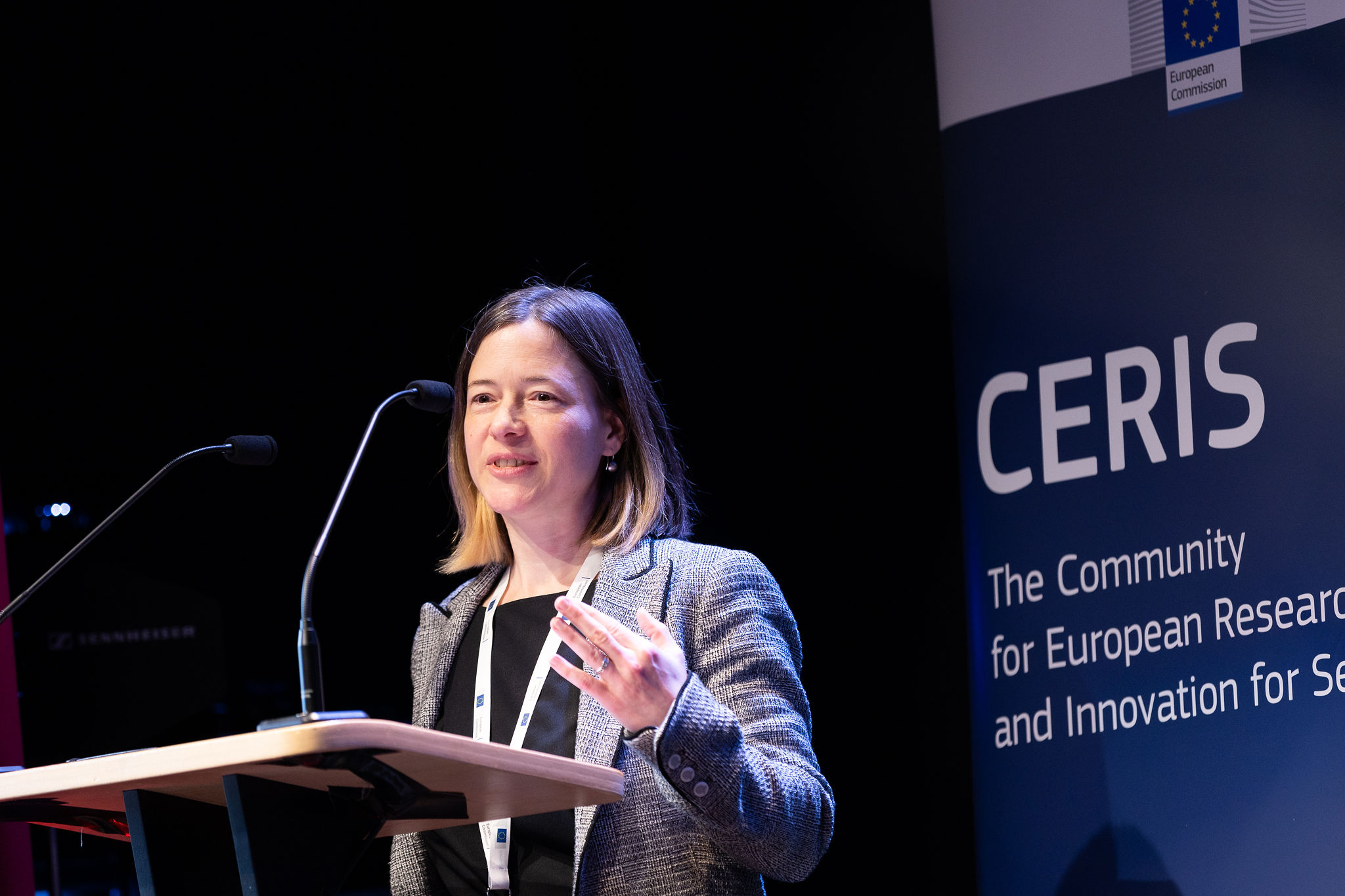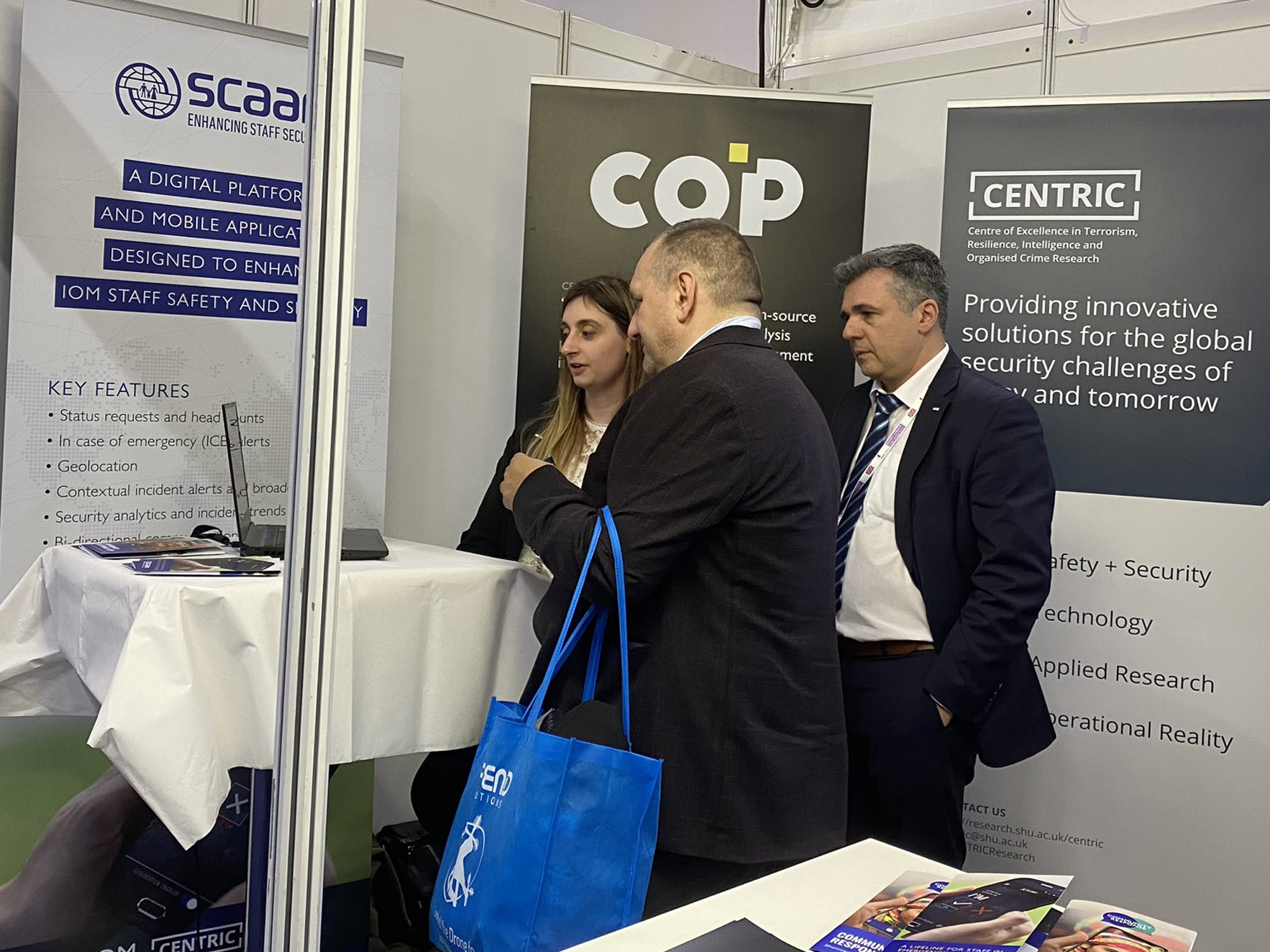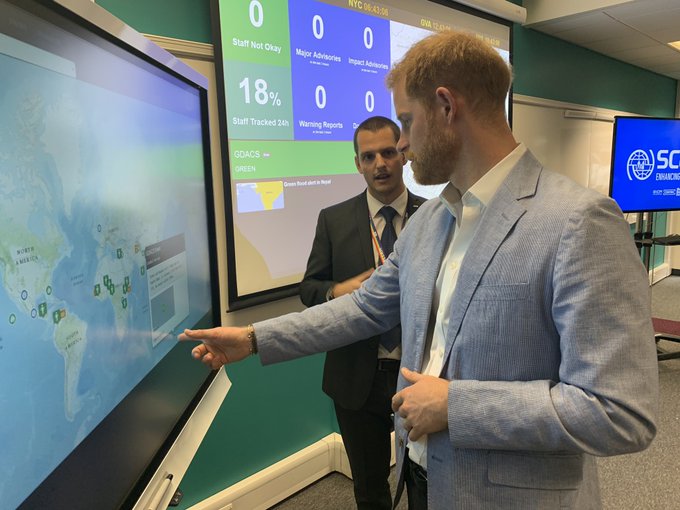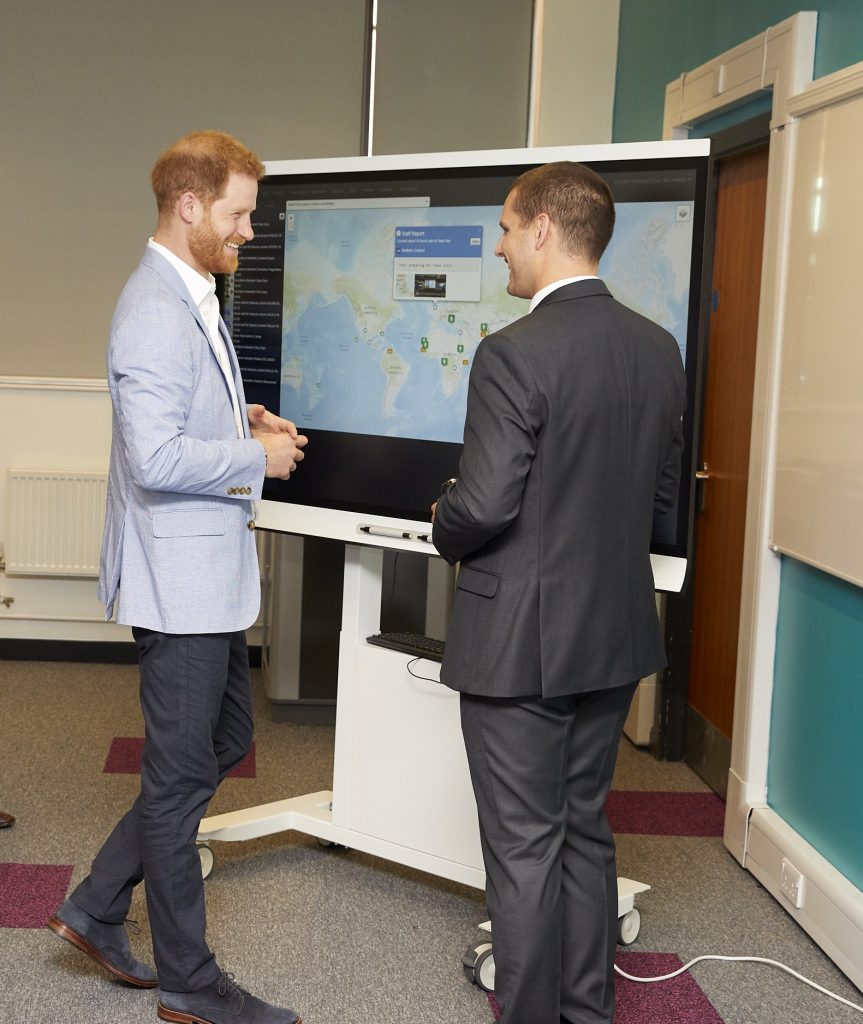Serious Games for Training
Serious games simulate real world events and processes with the purpose of providing unique challenges to improve a user’s problem solving capabilities. Primarily serious games are developed to train or educate users and are particularly suited for specialised or dangerous scenarios such as natural disaster response, surgery, fire fighting or counter terrorist operations.
CENTRIC specialises in providing practical research, capable of bridging the research-reality gap. In this function CENTRIC aims to improve the capabilities of counter terrorist teams and first responders in reacting, mitigating and recovering from terrorist threats through the use of state-of-the-art technologies, systems and processes including virtual reality, real world event simulation, and effective multi-agency collaboration.
Publications and News
Counter-terrorism police are now training with virtual terrorists
Security, Society and the Citizens
CENTRIC’s partnerships with LEAs ensure that the protection of society and citizen is at the forefront of the work carried out within CENTRIC. In particular, Athena looks to enable citizens to contribute to the crisis response and reaches out to those citizens who act as the pre-first responders; Unity’s focus on community policing considers how the police and communities can be brought closer together to achieve more cohesive and engaged communities across Europe; while both Transrad and Smart-CV consider counter-radicalisation and its impact on civil society.
Related Projects
Smart-CV – Social Media Anti-Radicalisation Training for Credible Voices
Publications and News
Communication and Knowledge Modelling for Crisis Management
As part of the Athena project, CENTRIC has been a key partner in the researching the communication that occurs over social media in the midst of a crisis. This included the production of a set of best practice guidelines for first and emergency responders in the use of social media during a crisis situations. Complementing this has been the development of a crisis taxonomy and entity extraction model that can be used to help understand the content of social media messages and ultimately transform and aggregate them into meaningful content that can be used by emergency services to improve their situational awareness of the current crisis without experiencing information overload.
Related Projects
Publications and News
Situational Awareness and Open Source Intelligence
The conversion of unstructured big data in the open source sphere into real time, concise information that tells a clear story about current events is the key challenge behind situational awareness and open source intelligence (OSINT). Such processes can also be applied to support lesson learning on events gone by as well as predictions into those possible in the future. Making the most of the data available in open source and the deep web has applications in all industries, especially including emergency response and the identification and prevention of organised crime.
CENTRIC is vastly extending its capabilities in gathering and processing open source data for both situational awareness and open source intelligence through the teams’ research and technology delivered within and around the ePOOLICE and Athena projects. Both of these EU FP7 projects are delivering data federation, aggregation and analysis capabilities through extensive models of crime and crises all the way to bespoke visualisation techniques.
Publications and News
Human Trafficking, Modern Slavery and Organised Crime
It is acknowledge that organised crime in general is becoming more diverse. As the world continues to develop, with globalization and technological change facilitating increased levels of collaboration between criminal groups, the diversification of illicit activity, and the removal of geographical boundaries has significantly extended the reach and operations of organised crime networks.
Research surrounding novel methods of identifying indicators of organised crime, including drug and human trafficking is very much the focus of the EU FP7 funded ePOOLICE (environmental scanning for the early detection of organised crime) project which aims to utilise leading research in the fields of unsupervised information extraction, semantic text mining , knowledge representation, and automatic data analysis and aggregation techniques in order to identify weak signals of the emergence and spread of organised criminality throughout the European Union.
In addition CENTRIC currently plays host to an ongoing PhD project aimed at studying intelligence-led approaches to preventing and responding to the threat of human trafficking and modern slavery within the UK. In collaboration with the West Yorkshire Force Anti-Trafficking Unit, the project utilises organisational capability building approaches such as knowledge management to model current operating models of policing in order to determine a target operating approach of effective practice; accounting for cultural, organisational and technological barriers and facilitators of knowledge exchange.
Cybercrime and Cyberterrorism
The proliferation and continued rapid development of technology across society as a whole is paving the way for new and evolving forms of criminality. As the concepts of cybercrime and cyberterrorism have gained traction, so has the presence and ubiquity at which the cyber element has spread across almost all forms of crime thus increasing the need for increased awareness and education, and further research in the field in order to increase society’s overall resilience to the challenges it faces as a result of the information age.
This concept lies at the heart of COURAGE (Cybercrime and Cyberterrorism EU Research Agenda), a two year EU FP7 funded research project aimed at defining the future research agenda for cybercrime and cyberterrorism related issues. CENTRIC, through COURAGE, has entered into prolonged engagement with stakeholders, including law enforcement, government officials, cyber-security experts and others, in order to define some of these key challenges and issues that should be addressed as a priority by future EU research initiatives.
Further projects, such as UINFC2 (Engaging Users in Preventing and Fighting Cybercrime) has refined this focus further, by seeking to directly engage with law enforcement and reporting hotlines in supporting efforts to tackle the use of the internet for the sexual exploitation of children and the dissemination of indecent content making use semantic text mining and knowledge representation techniques to identify content on the web.
Related Projects
Courage – Cybercrime and Cyberterrorism European Research Agenda
UINFC2 – The Illegal Use Of The Internet In Fighting Cyber Crime
Publications and News
Counter Terrorism
CENTRIC’s partnerships with LEA’s across the European Union provide it with the unique capability to provide practical research solutions for Counter Terrorism. In particular providing intelligent systems through projects such as TRANSRAD (Transversal Bridge), COURAGE and Athena, CENTRIC will reinforce the counter terrorism capabilities of LEAs. These include counter-radicalisation, utilising open source intelligence networks and identifying cyber terrorism. This focus has further been refined by projects such as AUGGMED, providing capabilities beyond the scope of information management and towards more practical solutions such as training.
Related Projects
Courage – Cybercrime and Cyberterrorism European Research Agenda
Transrad – Transversal Bridge
Publications and News
Taking Courage, Tackling Terrorism
AUGGMED: Research in using Immersive Virtual Reality to Train Police Forces
Intelligence Management
With more data created over the past two years than ever before, information and intelligence management has become increasingly important. Efficiently and accurately searching through this data for key information is a key challenge of modern intelligence gathering techniques and is imperative to provide concise situational awareness and accurate intelligence. CENTRIC is pushing the boundaries of current state-of-the-art technologies by providing intelligent, holistic and adaptive solutions through projects such as Athena, ePOOLICE and TRANSRAD (Transversal Bridge). Through practical research and the development of physical solutions CENTRIC is bridging the research-reality gap and is vastly expanding the capabilities of its research partners and their intelligence management systems.
Related Projects
Publications and News
Formal Concept Analysis
Formal Concept Analysis (FCA) is a mathematical theory of data analysis using formal contexts and concept lattices. FCA is a principled way of deriving a concept hierarchy or formal ontology from a collection of objects and their properties. Each concept in the hierarchy represents the set of objects sharing the same values for a certain set of properties.
Advances in algorithms and tools to carry out FCA, such as the Formal Concept Miner at CENTRIC developed in the European CUBIST project, has allowed FCA to be applied to large-scale data and in text mining to extract, aggregate and visualise key concepts from the data.
In this way, CENTRIC has developed key FCA-based components for the European Athena and ePOOLICE projects. In Athena, FCA is used to analyse information in social media and Mobile App messages to prioritise situations in crisis management. In ePOOLICE, FCA is used to aggregate weak signals from the Internet to alert LEAs to the threats posed by organised crime.
Publications and News
Using formal concept analysis to detect and monitor organised crime.
Tackling financial and economic crime through strategic intelligence: The EMPRISES Framework.
Environmental Scanning and Knowledge Representation for the Detection of Organised Crime Threats
Combining big social media data and FCA for crisis response
The ATHENA Project: Using Formal Concept Analysis to facilitate the actions of responders in a crisis situation


